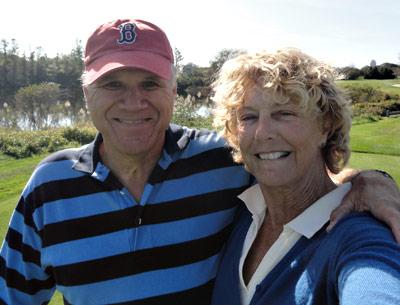The Stuff of Book Club Brawls

When James Whitfield Thomson hemmed and hawed in describing just what his new novel, “Lies You Wanted to Hear,” was about, his daughter challenged him to think in terms of what would go on a movie poster. His answer: “What could make a good man do such a thing?”
The “thing” is to abscond with two children, disappearing into the Middle American vastness, adopting new names and making new lives in a kind of self-fashioned witness-protection program. They hide from a mismatched marriage, a court system stacked against fathers, and a woman deemed an unfit mother — she lets a relative drive drunk with the kids, she cheats, she smokes pot and leaves cigarettes to burn into the sofa. She is abruptly, harshly left bereft. For 16 years.
Mr. Thomson based the story on a late-1990s account in The Boston Globe. In that case, the two daughters involved grew into successful women, stood by their father, and refused to see their mother. Here, the whole point is that nothing is cut-and-dried.
“Lies You Wanted to Hear” is told from the points of view of the two antagonists, Lucy and Matt, in alternating chapters rich with psychology, rationalizations, and their interior lives.
“There are complicated motivations at work,” Mr. Thomson said from Natick, Mass., where he lives most of the year, spending part of each spring and fall at a house he and his wife keep in Amagansett. We come to see some of Matt’s irrationality through his own words, while Lucy’s greatest crime may be that she never truly loved him and isn’t exactly cut out for motherhood. And yet for a decade and a half her answering machine plays the same heartbreaking message seeking information about her children and begging them to come home.
“It was important that there isn’t a major villain. These are essentially good people who got in a bad situation. I’ve said my goal was to start fistfights in book clubs: ‘He . . .’ ‘Yeah, but she. . . .’ ”
The debut novel, released by Sourcebooks in November, has been remarkably well received in publications ranging from People and Redbook magazines to Publishers Weekly. Which is all the more remarkable because the debut novelist was 67 when it came out.
“It’s been called compulsive, which connotes plot-driven,” he said, while the book in fact involves detailed character studies, “though I do use story to keep it driving forward.”
For five years Mr. Thomson took a workshop in the Massachusetts home of Andre Dubus, the late short-story writer and master of all subjects domestic. “That’s where I got my love of writing and my training. A lot of great writers went through there — George Packer, for instance, the New Yorker staff writer.”
He learned “how to go more deeply into my characters and make them real. Andre said to make no outline, just start with some scenes and see where they take you . . . follow your nose. That’s what I did with Matt’s family background,” he said of the Boston cop from a Pennsylvania coal-mining family. “I didn’t know where it came from, but I had fun exploring it.”
Although the novel is very much a debut — Mr. Thomson had a story in the journal AGNI, but precious little else — he has been at the writing game for a couple of decades. Whether that’s dispiriting or encouraging is in the eye of the beholder.
“This is my third novel,” and, four or five years and three drafts later, “my first to get published. Over the years I’ve received 250 rejections — through agents,” not in response to over-the-transom submissions.
His bookish interest, however, is longstanding. He wrote his dissertation on Raymond Chandler and taught literature at the University of Miami in Florida for a time, memories of which can elicit groans. “The tenured professors just seemed very unhappy. It was set up so that the students were ‘them’ and the faculty was ‘us.’ It was extremely political. I like to describe it as a lot of really, really smart rats fighting over a really, really small piece of cheese.”
So he went for easy cheese hiding in plain sight, helping found what he called a specialized computer company in 1978. “We controlled photocopying machines in law firms and accounting firms — places that charge for time and expenses.” A quotidian but profitable enterprise, long since gobbled up by a bigger corporate player.
Now, as writers know, revising can be endless, and Mr. Thomson isn’t fighting it. He’s going back to a 15-year-old novel, “The Jukebox King,” set in 1962 in his hometown of Pittsburgh — a “rock ’n’ roll novel” with an autobiographical touch.
In the meantime, there are rounds of readings to be made, where if bibliophiles are lucky they might land his preferred inscription: “I hope the lies you want to hear all come true.”
